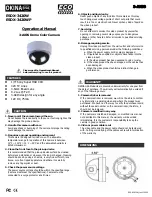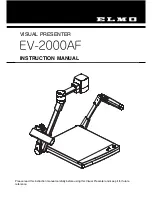
Page 54
Basics of Infrared Thermometry
thermoIMAGER TIM
For the measurement of “thermal radiation” infrared thermometry uses a wave-length ranging between 1 μ
and 20 μm.
The intensity of the emitted radiation depends on the material. This material contingent constant is described
with the help of the emissivity which is a known value for most materials
Infrared thermometers are optoelectronic sensors. They calculate the surface temperature on the basis of the
emitted infrared radiation from an object. The most important feature of infrared thermometers is that they en-
able the user to measure objects contactless. Consequently, these products help to measure the temperature
of inaccessible or moving objects without difficulties.
Infrared thermometers basically consist of the following components:
- Lens
- Spectral filter
- Detector (sensor)
- Electronics (amplifier/ linearization/ signal processing)
Fig. 24 The electromagnetic spectrum and the area used for temperature measurement
The specifications of the lens decisively determine the optical path of the infrared thermometer, which is char-
acterized by the ratio Distance to Spot size. The spectral filter selects the wavelength range, which is relevant
for the temperature measurement. The detector in cooperation with the processing electronics transforms the
emitted infrared radiation into electrical signals.
















































